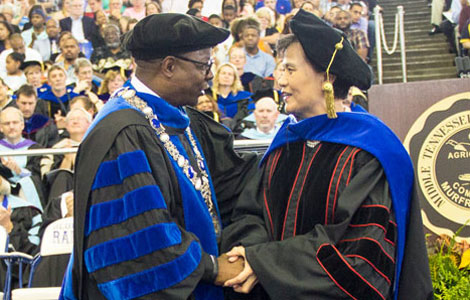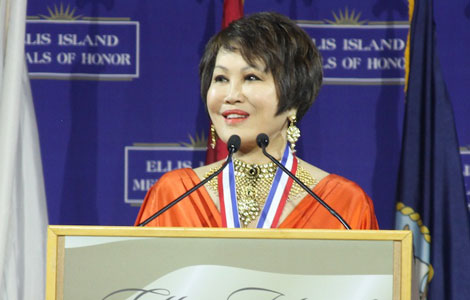Experts: Currency no big deal
Updated: 2014-05-13 07:18
By CHEN WEIHUA in Washingt (China Daily USA)
|
||||||||
|
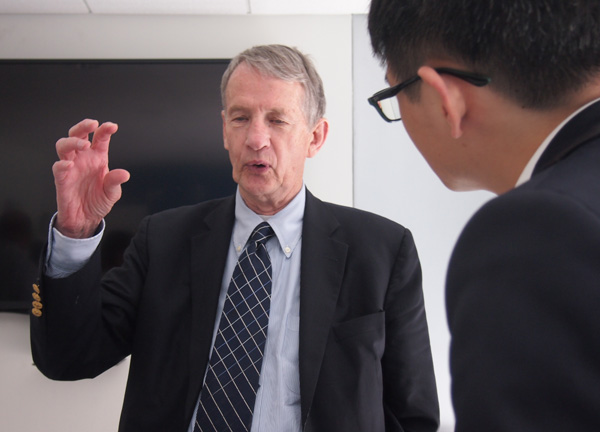 Gary Clyde Hufbauer, a senior fellow at the Peterson Institute for International Economics, chats with a reporter on Monday at a seminar in the institute on US-China economic relations. [Chen Weihua/China Daily] |
US experts disagree that China's currency would be a major issue of discussion as US Secretary of the Treasury Jacob Lew winds up his trip in Beijing on Tuesday evening.
Lew said on Friday that he would press Chinese officials to allow the market to play a bigger role in determining the value of China's currency after acknowledging China's steps in reforming its exchange rate policy.
"They widened their trading band. But we've seen some very negative movement in the exchange rate in recent months," Lew told Bloomberg in an interview.
Nicholas Lardy, a senior fellow at the Peterson Institute for International Economics, said Lew has focused on the depreciation of the yuan over the last few months.
"I think there has been no fundamental change in Chinese exchange rate policies other than the central bank not wanting to discourage carry trade transactions," he said.
Carry trade refers to a strategy in which an investor sells a certain currency with a relatively low interest rate and uses the funds to purchase a different currency yielding a higher interest rate.
"One way of doing that is having more two way movement of the exchange rate," Lardy said.
As an economist, Lardy said he is looking at longer-term trends and issues, rather than short term.
The yuan has depreciated 2.9 percent against the US dollar since January 1 this year, but it has appreciated some 35 percent since 2005.
Eswar Prasad, a senior fellow at the Brookings Institution and a professor at Cornell University, said the pressures on the yuan appear evenly balanced and should in principle make it a less contentious issue between China and the US.
"With China's trade and current account surpluses still at low levels, it is hard to make a case that the renminbi is significantly undervalued based on short-term macroeconomic fundamentals," said Prasad, author of the new book The Dollar Trap — How the US Dollar Tightened its Grip on Global Finance.
But he said the US administration clearly remains concerned about the rising US bilateral trade deficit with China and the extent of foreign exchange intervention by the People's Bank of China, especially in the first quarter of 2014.
Gary Clyde Hufbauer, a senior fellow at the Peterson Institute, said Lew was speaking to two audiences — Chinese officials and the US Congress — about the currency issue. "The audience on Capitol Hill is more important," he said.
Prasad, a former head of the IMF's China division, believes discussions about the yuan's value at the moment are a distraction from the more important bilateral issues between the two countries, including market access, protection of intellectual property rights and the major economic and financial market reforms that China is embarking on.
"These reforms, which the US supports in principle and could also support more directly by providing technical assistance and guidance, are in the mutual interests of the two countries as they can make China's growth more balanced and sustainable," he said.
Hufbauer, a former deputy assistant secretary for international trade and investment policy at the department of the Treasury, believes the talk on the Bilateral Investment Treaty (BIT) that Lew would discuss with Chinese officials will be important.
He said the symbolic significance will be far greater because it will demonstrate the new Chinese government's ability to move forward with economic reforms.
Chinese foreign direct investment in the US this year is likely to exceed US FDI in China. China's Ministry of Commerce data show that US FDI in China in 2013 was $3.4 billion, trailing the European Union and many Asian economies.
Meanwhile, the Rhodium Group estimated the total Chinese FDI in the US at $14 billion in 2013.
On the Chinese concern over US discrimination against Chinese investors, which CFIUS (The Committee on Foreign Investment in the United States) often cites for national security reasons, Hufbauer said the CFIUS process could be more transparent.
But Lardy believes it will be difficult for the Obama administration to go to Congress to ask for revisions in the CFIUS process to accommodate the Chinese since the US has long insisted that it has an open and transparent system.
Unlike Hufbauer, who believes the BIT could be concluded next year, Lardy said it could take a longer time based on what he heard from some US business leaders in Beijing.
Most Viewed
Editor's Picks

|

|
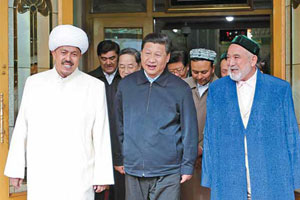
|
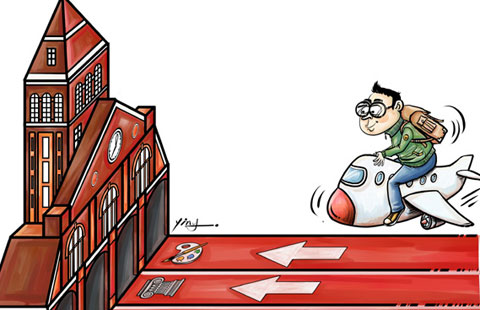
|

|

|
Today's Top News
Alibaba names ex-Treasury official as communications chief
9 Chinese Americans get medals
Chinese cut big African air deal
China's military brass visits US this week
Tuniu Corp's IPO on Nasdaq raises $72m
US SEC will hear appeal on "Big 4"
Explosion of riches
Manila testing Beijing's patience
US Weekly

|

|



